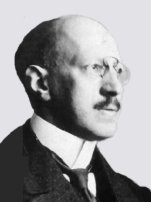|
变异的性行为
|
|
历史背景 3:
性学应运而生
|
|
 |
|
爱文·布洛赫
(1872-1922)
德国皮肤病学家,把性学从科学角度提出了自己的概念。1913年,他与马格勒斯·赫希菲尔德以及其他数位同僚创建了世界上第一个性学协会。
|
|
Iwan Bloch
(1872-1922) a German dermatologist, developed the concept of sexology as a science in
its own right. In 1913, he founded the first sexological society in Berlin together with
Magnus Hirschfeld and several other colleagues. |
|
|
在19世纪,当精神病学家着手研究人类的性行为的时候,他们开始假定大多数人的性行为是“正常的”,而且假定少数人的“性倒错(perversion)”或多或少与长期以来由教堂所谴责的罪过和堕落是可互换的。可是,当深入研究就毫无疑问地显示人的性兴趣种类繁杂,于是,医生们就连忙对每一项新的发现进行命名、归档和分类。新个案研究素材不断地积累下来,在“性病理学(sexual pathology)”的病名中排列了冗长的一串列表,这些病名是一些带着发音奇特的希腊语或拉丁语名称——从“性虐狂(algolagnia)”到“嗜兽癖(zoophilia,动物之性欲性恋)”,不一而足。但是,显而易见,这个全然无止境的病名列表简直就是完全不同的大杂烩,而且对任何一种所谓的病案没有什么规范的治疗措施。与一般的疾病不同的是,依据个案不同,对同样的诊断不得不使用不同的治疗措施。最糟糕的是,大多数时候,这些治疗措施证明都归于失败。
面对这种情形,就需要新的研究思路和研究方法,于是一门崭新而专门的学科“性的科学”应运而生,这是集自然科学和社会科学的研究方法于一体的学科:性学(sexology)[1]。正如它的创立者爱文·布洛赫所指出的那样:
“性……的双重本性……,它的生物和文化方面的特性,就其自身的角度看,必须要(把它)创立成一门独立的科学,即性学(sexology);这门科学不再被当作任何其它科学的附属物……。
在这个学科领域里,通过纯医学-临床的研究方法,如果撰造带有奇怪发音的外国语术语,人们相信这会引导我们丰富这个科学体系……。性(sexuality)的这种纯粹的医学(而不是精神病的)的观点……对人类生活的其余所有方面来说,尚不足以了解性的多边关联关系。这些多边关联关系从其总体上看,才是性学的研究课题”。[2]
|
|
[1].通常在字典均译为性学,这和-logy一后缀通常译为“学”相一致,也符合布洛赫把性学看成综合的自然科学与社会科学兼而有之的特点。有译为“性科学”的,这种译法实际上只是想强调性学的生物医学方面,并不符合性学一词的本意。事实上-logy译为“学”也就是”科学”之意,如“生理学”也有“生理科学”之意,这样,这个“学”字就变成一个类词,包括生理学、生物化学、药理学、毒理学、病理生理学等。“性科学”并不是一个类词,所以用它来译sexology,不如译成“性学”简洁而准确。相应地,sexologist可以译为“性学家”,也不必译为“性科学家”。——校者注。
[2].
爱文·布洛赫.消逝的卖淫.第一卷.柏林:路易斯·马库斯出版社,1912.7-8 |
|
Variations in Sexual Behavior |
|
Historical Background 3: Sexology |
|
When, in the 19th century, psychiatrists began to study human sexuality, they started with the assumption that most of it was “normal”, and that the few “perversions” were more or less identical with the sins and vices long deplored by the Church. However, when a closer look revealed an unsuspected variety of sexual interests, the doctors promptly proceeded to name, list and classify every new discovery. A steady stream of new case studies produced an ever-lengthening list of “sexual pathologies” with new strange-sounding Greek or Latin names - from “algolagnia” (erotic love of pain) to “zoophilia” (erotic love of animals). At the same time, it became clear that this sheer endless diagnostic list represented a hodge-podge of very disparate elements, and that there was no standard treatment for any of them. Instead, depending on the individual case, one had to apply different therapies for the same diagnosis. Worst of all, most of the time, they proved unsuccessful.
In this situation, a new approach was needed, and it was provided by a new, special “science of sex” that combined the methods of both the natural and social sciences: Sexology. As its founder
Iwan Bloch put it:
|
“The double nature of ...sex…, its biological and cultural aspect, (makes it) necessary to found sexology as a science in its own right, which must no longer be seen as an appendix of any other science… Where this would lead us has been shown by the purely medical-clinical approach of (those who) believed they had enriched science when they had only coined new foreign-sounding terms…The purely medical
(let alone psychiatric) view of sexuality... is not sufficient to understand the many-sided relationships of sex to all other spheres of human life. These relationships in their totality are the subject of sexology”. 1
|
|
1. Iwan Bloch, Die Prostitution, vol. I, Berlin: Louis Marcus 1912, pp. vii-viii. |